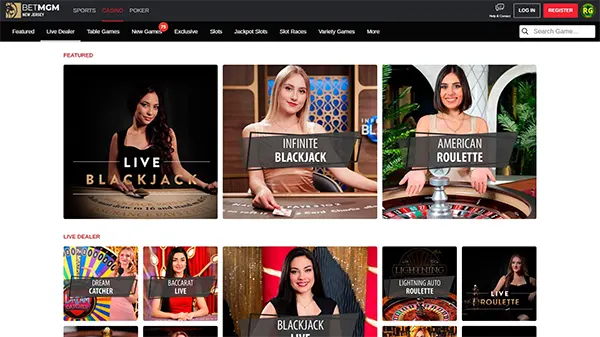Social Functions of Betting at BetMGM: Does ‘Community Betting’ Really Work?

In recent years, BetMGM has experimented with adding social features to its sports betting services, aiming to transform wagering from an individual activity into a collective experience. These tools, often referred to as ‘community betting’, seek to create a sense of belonging among users by enabling them to share bets, follow trends, and communicate with other bettors. As this approach gains traction, questions arise about its effectiveness and the impact it has on user behaviour.
How Community Betting Works at BetMGM
BetMGM’s community betting features are designed to simulate the atmosphere of group wagering traditionally seen in physical sportsbooks. Users can follow popular bets placed by others, see real-time betting trends, and even join group wagers where multiple bettors stake on the same outcome. The goal is to increase engagement by fostering a shared sense of excitement and participation.
One prominent function is the ‘bet share’ tool, allowing users to publish their betting slips for others to view. This not only promotes transparency but also encourages discussion and debate around betting strategies. Seeing what others are betting on can influence individual decisions, shaping betting patterns across the community.
In addition, BetMGM offers social leaderboards and achievements that rank users based on their performance. This gamified approach appeals to users who enjoy competition and recognition, reinforcing ongoing activity within the community.
Psychological and Behavioural Impact
The introduction of social functions significantly affects how users engage with betting. By showcasing winning bets and highlighting popular trends, BetMGM taps into users’ fear of missing out (FOMO), often encouraging more frequent participation. Social validation plays a major role here, as bettors are more likely to place bets that align with community sentiment.
However, this dynamic can also lead to riskier behaviour. Users might mimic high-stakes bets from top-ranked members without fully assessing the associated risks. Studies from gambling behaviour researchers in 2024 suggest that social influence in betting communities often reduces critical thinking and promotes impulsive decisions.
For responsible betting, it becomes essential that these features are combined with clear risk reminders and budget control tools. BetMGM has introduced responsible gaming pop-ups and time limits to mitigate these risks, though their long-term effectiveness is still under evaluation.
Benefits and Limitations of Social Betting
Community betting offers several potential benefits. It can enhance user engagement by creating a more interactive environment, which helps reduce the isolation often associated with online betting. Sharing experiences can also contribute to emotional support among bettors, particularly during losing streaks, making the activity feel less solitary.
Another positive aspect is the educational value. Beginners can learn strategies from experienced bettors by observing their bets and discussions. This peer-to-peer learning can shorten the learning curve and promote more informed decision-making, at least in theory.
Yet, these advantages come with notable limitations. Group dynamics may create echo chambers where only popular opinions dominate, limiting diverse viewpoints. Furthermore, exposure to other users’ big wins can lead to unrealistic expectations, prompting some to chase losses and wager beyond their means.
Regulatory and Ethical Considerations
As social betting features expand, regulatory bodies are paying close attention to their impact on consumer protection. The UK Gambling Commission and US state regulators have emphasised the need for transparency in how betting trends are displayed, warning that misleading presentation could be considered exploitative marketing.
Ethically, there are concerns about normalising gambling through social interaction. While social features can make betting feel more entertaining, they may blur the lines between casual participation and compulsive behaviour. Regulators recommend that social tools include prominent responsible gambling notices and direct links to support services.
BetMGM has begun incorporating these elements, but independent watchdog groups stress that self-regulation is not enough. They argue for stricter external oversight to ensure social betting does not encourage harmful patterns, especially among younger or vulnerable users.

The Future of Community Betting at BetMGM
Looking ahead, BetMGM is expected to continue refining its community betting model, focusing on integrating more personalisation through data-driven recommendations. This could mean showing users tailored bet suggestions based on their past activity, combined with insights from trending community bets.
However, the company will need to strike a balance between innovation and player safety. Introducing AI-driven social features could boost engagement but also heighten the risk of reinforcing unhealthy betting habits if not monitored closely. Independent audits and transparency reports will likely become standard practice to reassure both regulators and players.
Ultimately, the success of community betting at BetMGM will depend on how effectively it can combine social engagement with strong safeguards. If managed responsibly, it could reshape sports betting by turning it into a more collaborative experience, but without proper oversight, it risks amplifying the very issues regulators seek to control.
What This Means for Bettors
For individual bettors, community betting offers new ways to interact, learn, and enjoy the process. However, it is crucial to approach these features with a critical mindset, recognising that popular bets are not necessarily profitable bets. The social environment should complement personal strategy, not replace it.
Users should take advantage of available responsible gaming tools, such as deposit limits and time trackers, while engaging with social features. This can help prevent impulsive decisions driven by social pressure or competition.
Ultimately, community betting can enrich the betting experience if used wisely. The responsibility lies with both the operators to provide safe structures and the bettors to maintain self-discipline while engaging with the community.


